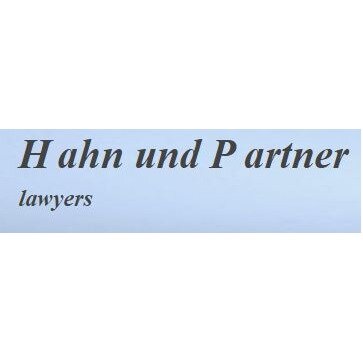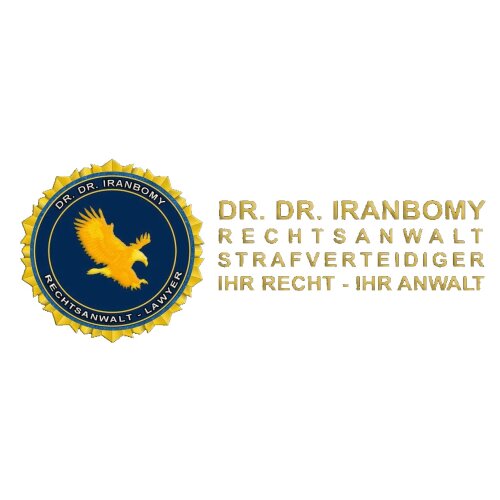Best Public-Private Partnerships (PPP) Lawyers in Germany
Share your needs with us, get contacted by law firms.
Free. Takes 2 min.
Or refine your search by selecting a city:
List of the best lawyers in Germany
About Public-Private Partnerships (PPP) Law in Germany
Public-Private Partnerships (PPP) in Germany refer to long-term cooperation models between public authorities and private sector companies for the delivery of public services or infrastructure. PPP projects are commonly used in sectors such as transportation, education, healthcare, energy, and municipal infrastructure. The aim is to combine the strengths and resources of both public and private partners to deliver efficient, high-quality public services while sharing risks and investment costs. PPPs have gained in importance over the past decades as local and federal governments seek innovative solutions for financing, building, and operating essential infrastructure.
Why You May Need a Lawyer
Engaging in a PPP in Germany often involves navigating complex legal frameworks and administrative processes. You may need the support of a lawyer in situations such as:
- Drafting, reviewing, or negotiating PPP contracts and project agreements
- Understanding public procurement laws and procedures
- Structuring the financing and risk allocation of PPP projects
- Dealing with regulatory compliance and approvals from authorities
- Resolving disputes or renegotiating terms between project partners
- Advising on tax, accounting, or state aid implications of PPP models
- Handling intellectual property, data protection, or construction law concerns
- Ensuring environmental and social standards are met
- Representing clients in administrative or court proceedings related to PPP matters
Local Laws Overview
The legal basis for PPPs in Germany is shaped primarily by public procurement law, administrative law, civil law, and sector-specific regulations. Key legal aspects include:
- Public Procurement Law: All PPP projects involving public authorities are subject to German and EU procurement rules, ensuring transparent and competitive bidding processes.
- Contract Law: The structure and content of PPP agreements must comply with German civil law, including provisions on performance obligations, liability, termination, and dispute resolution.
- Financing and Investment Rules: Special rules may apply regarding public budgeting, debt limits, and private financing arrangements.
- State Aid Law: PPP projects must comply with EU rules on state aid to avoid distortions of competition.
- Sectoral Regulations: Additional regulations may apply depending on the sector, for example in transport, waste management, or healthcare.
- Risk Allocation: German PPPs typically involve a careful balance of risk sharing between public and private partners, regulated in the contractual documents.
Frequently Asked Questions
What is a Public-Private Partnership (PPP) in Germany?
A PPP in Germany is a collaborative arrangement between government bodies and private companies to finance, design, build, or operate public infrastructure or services. These partnerships are based on contracts outlining the roles, responsibilities, and risk sharing between the parties.
Which sectors commonly use PPPs in Germany?
PPPs are commonly used in transportation (roads, railways), schools, hospitals, municipal facilities, energy infrastructure, water management, waste treatment, and IT projects.
How are PPP projects awarded in Germany?
PPP projects are typically awarded through public procurement processes, which require transparent, non-discriminatory, and competitive tendering in line with national laws and EU directives.
What are the main legal risks for private companies in PPP projects?
Key risks include compliance with procurement and regulatory requirements, potential changes in law or policy, construction delays, performance risks, and financial risks related to project profitability and funding.
Can SMEs participate in PPP projects?
Yes, small and medium-sized enterprises (SMEs) can participate, either directly or as part of a consortium. However, project size, complexity, and required financial and technical capacities can pose challenges for SMEs.
How are PPP contracts structured in Germany?
PPP contracts detail project delivery, financing, ownership, risk allocation, performance standards, dispute resolution, termination rights, and payment mechanisms. They are tailor-made for each project but follow best-practice guidelines.
What is the role of the public sector in a PPP?
The public sector defines project requirements, oversees procurement, ensures compliance with laws and public interests, and may retain ownership or regulatory control over the project or assets involved.
Are PPP projects off the public balance sheet?
Depending on risk transfer and project structure, some PPPs may be accounted for off the public balance sheet, but this requires compliance with strict EU and national accounting rules.
What happens if a dispute arises in a PPP project?
Dispute resolution mechanisms are typically set out in the PPP contract, including negotiation, mediation, arbitration, or recourse to courts. Early legal advice is important when disputes arise.
Is legal advice mandatory for PPPs?
While not legally mandatory, professional legal advice is highly recommended for both public authorities and private companies due to the complexity and long-term nature of PPP contracts.
Additional Resources
For more information and support on PPP matters in Germany, you may contact or refer to:
- The Federal Ministry of Transport and Digital Infrastructure (Bundesministerium für Digitales und Verkehr)
- PPP Task Force at the Partnership Germany - German PPP Centre
- The German Institute for Urban Affairs (Difu)
- The Chamber of Industry and Commerce (IHK) in your region
- Legal and business advisory firms with PPP expertise
- Specialist PPP literature and publications available in libraries and online
Next Steps
If you are considering involvement in a PPP project as a public authority, private company, or adviser, you should:
- Assess the project's objectives, scope, and sector-specific requirements
- Familiarize yourself with relevant procurement, contract, and sector laws
- Collect and review all available project information and documentation
- Identify and engage qualified legal professionals specializing in PPPs
- Request an initial consultation to discuss your needs, risks, and legal options
- Ensure ongoing legal support throughout the procurement, negotiation, execution, and operation phases of the PPP project
Taking early legal advice can help protect your interests, ensure compliance with local laws, and set your PPP project up for long-term success.
Lawzana helps you find the best lawyers and law firms in Germany through a curated and pre-screened list of qualified legal professionals. Our platform offers rankings and detailed profiles of attorneys and law firms, allowing you to compare based on practice areas, including Public-Private Partnerships (PPP), experience, and client feedback.
Each profile includes a description of the firm's areas of practice, client reviews, team members and partners, year of establishment, spoken languages, office locations, contact information, social media presence, and any published articles or resources. Most firms on our platform speak English and are experienced in both local and international legal matters.
Get a quote from top-rated law firms in Germany — quickly, securely, and without unnecessary hassle.
Disclaimer:
The information provided on this page is for general informational purposes only and does not constitute legal advice. While we strive to ensure the accuracy and relevance of the content, legal information may change over time, and interpretations of the law can vary. You should always consult with a qualified legal professional for advice specific to your situation.
We disclaim all liability for actions taken or not taken based on the content of this page. If you believe any information is incorrect or outdated, please contact us, and we will review and update it where appropriate.
Browse public-private partnerships (ppp) law firms by city in Germany
Refine your search by selecting a city.
















